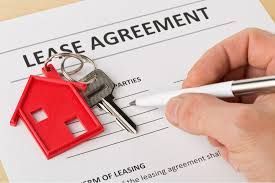What to Include in a Lease: Complete Guide to the Leasing Process and How to Write a Lease
Disclaimer: This guide is here to help you understand leases in Illinois. It’s for general information only and not legal advice. If you need help with your unique situation, talk to an Illinois attorney.

A straightforward, well written lease can save everyone headaches down the road. In this guide, we will walk through the must have parts of a lease, share drafting tips, cover what landlords and tenants need to know, and dive into Illinois specific rules. Whether you are a first time landlord or renting your first home, this guide has you covered.
What Is a Lease Agreement, Anyway?
A lease is a contract where a landlord lets a tenant use property for a set time in exchange for rent. It spells out who does what, such as when rent is due, who handles repairs, and how and when to end the lease. Think of it as a roadmap for a smooth tenancy.
Key Legal Basics in Illinois
Before you start typing, here are a few legal checkpoints in Illinois:
- Written Leases Over One Year: If your lease is longer than a year, it needs to be on paper, signed, and it is a good idea to record it (765 ILCS 5/1)
- E signatures Are OK: Illinois lets you sign leases electronically under the Electronic Commerce Security Act
- Capacity and Consent: Both parties must be adults with the mental capacity to sign
- Consideration: The exchange of rent for the right to use the property
What Goes Into a Lease?
A lease lays out all the details so everyone is on the same page:
- Property Details: Exact address and boundaries
- Term: Start and end dates
- Rent: How much, when it is due, and how to pay
- Security Deposit: Amount, how it is held, return rules
- Rights and Rules: Items like quiet enjoyment, repairs, and what happens if someone breaks the rules
Include enough detail to avoid surprises later.
Why Leases Help Everyone
A good lease keeps landlords and tenants in sync. Landlords know when to expect rent and how to handle issues. Tenants know their rights, such as a safe place to live and privacy. It builds trust and cuts down on disputes.
Types of Leases You Might See
| Lease Type | Typical Length | Where You See It |
|---|---|---|
| Residential | 6 to 12 months | Houses and apartments |
| Commercial | 3 to 10 years | Shops, offices, warehouses |
| Short Term | Days to weeks | Vacation rentals and event spaces |
| Land Lease | 20 to 99 years | Farms and ground leases |
Each kind has its own quirks. For example, commercial leases often talk about tenant improvements. Short term leases focus on quick turnovers.
The Essentials: Money and Fees
Rent and Due Dates
- Rent amount, due date (often the first of the month), and accepted payment methods like online portal or check
- Late fees usually apply after a 3 to 5 day grace period. Spell out the fee amount or percentage.
Security Deposits
- Illinois does not set a cap on deposits, but cities like Chicago limit it to 1.5 times the monthly rent
- Buildings with 25 or more units must hold deposits in an interest bearing account if the deposit is at least five dollars. Interest is paid yearly and at move out within 30 days of each anniversary and at lease end.
- Return time is 30 days with an itemized list of deductions, or full return within 45 days
- Give tenants a signed receipt when they pay the deposit and let them know if the deposit moves to another bank (765 ILCS 710/2)
Who Fixes What?
Habitable Dwelling
Illinois does not maintain a specific statutory provision in the Landlord and Tenant Act (765 ILCS 705/) that spells out the exact language requiring a landlord to provide a “habitable dwelling.” Instead, Illinois habitability obligations arise from common law, notably the implied warranty of habitability established by judicial decisions and guided by local building and health codes. Some general guidelines are:
- Generally understood to include basic services such as heat, hot water, running water, electricity, and functional smoke detectors, among other safety-related features
- Landlords must ensure compliance with applicable local building and maintenance codes.
- Repairs must be made within a reasonable timeframe, typically 14 days for non-emergency issues, sooner for emergencies; emergency repairs relate to conditions that pose an immediate threat to health or safety or risk irreparable harm to the premises
Typically Landlord Responsibilities
- Structure, roof, plumbing, heating, electrical, and required alarms like smoke detectors in sleeping areas and hallways, and carbon monoxide alarms if there is a fuel burning appliance
Typically Tenant Responsibilities
- Everyday cleaning and minor repairs under a cost threshold
- Report significant issues quickly
- Residential Tenants’ Right to Repair Act: Under this law, if a repair is required either by the lease agreement, state law, administrative rules, or local building codes, and the cost is no more than $500 or half of the monthly rent (whichever is less), tenants may take action and hire a qualified professional to complete the repair and deduct the cost from their rent.
Emergencies
- Landlord must handle serious hazards such as gas leaks or electrical problems right away
Ending or Renewing the Lease
When It Ends
- Fixed term leases end on the date in the lease unless there is a renewal clause
- Month to month leases require 30 days written notice to end
| Lease Type | Notice Needed | Illinois Law |
|---|---|---|
| Month to Month | 30 days written | 765 ILCS 742/5 |
| Fixed Term | As agreed, 30 days if silent | 765 ILCS 742/5 |
| Commercial | As negotiated | Lease agreement |
Automatic Renewals
If you want the lease to roll over, state how long and how much notice is needed to opt out.
Extra Clauses to Consider
- Pets: Size or breed rules, extra deposit
- Subletting: When it is allowed and any fees
- Early Move Out: Penalties or replacement tenant requirements
- Parking and Storage: Assigned spots, fees, liability
Writing the Lease: Step by Step
- Talk it out and agree on rent, term, and deposit first
- Fill in a template, tweaked for Illinois rules and your situation
- Review with both parties and consider a quick attorney check
- Sign and share copies, keep originals, and store digitally
Must Do Illinois Extras
- Lead based paint disclosure for pre 1978 buildings (42 U.S.C. § 4852d)
- Mold warnings if local rules require them
- Security deposit transfers: notify tenants if ownership changes and note both old and new landlords are responsible
- Eviction steps: five day notice to pay or quit, file under the Forcible Entry and Detainer Act (735 ILCS 5/9 209), and tenants have 14 days after judgment before a writ can be issued
Rights and Rules During the Lease
Landlords Should
- Keep the place safe and maintained
- Handle repairs and alarms promptly
- Give 24 hour notice before entering unless it is an emergency
- Follow building and health codes
Tenants Can Expect
- A safe place to live
- Privacy and advance notice for visits
- No discrimination under federal law and the Illinois Human Rights Act (775 ILCS 5/1 103)
- Deposit return with details on deductions
Handling Disputes
- Notice to cure with time to fix
- Mediation or arbitration before court
- Court options like eviction or small claims
Common issues include late rent, unauthorized pets or guests, damage, and noise complaints.
Day to Day Lease Management
- Rent Collection: Keep payment methods clear and enforce late fees
- Inspections: Perform move in, periodic (every six to twelve months with 24 hour notice), and move out inspections
- Repairs: manage repairs as they are identified.
Breaking or Renewing
- Early Exit: Use a break clause or find a replacement tenant
- Eviction: Five day notice, court filing, hearing, judgment, and 14 day move out
- Renewal: Automatic rollover, negotiate a new term, or convert to month to month
When to Call a Lawyer
Talk to a lawyer if you have a lengthy commercial lease, large deposits, tricky Illinois rules, a high stake dispute, new landlord tenant laws, or simply any questions you are unclear about. Writing a lease that fits Illinois rules does not have to be painful. Cover the basics, add the right disclosures, and keep communication open. A solid lease sets expectations, cuts down conflicts, and helps everyone focus on making the property feel like home.






